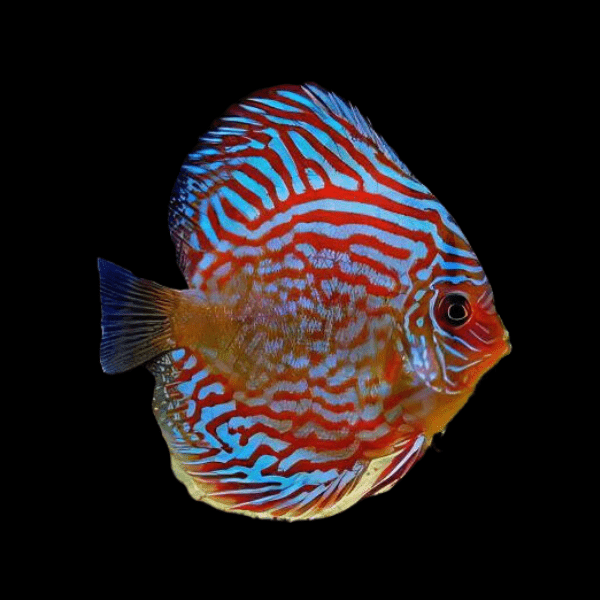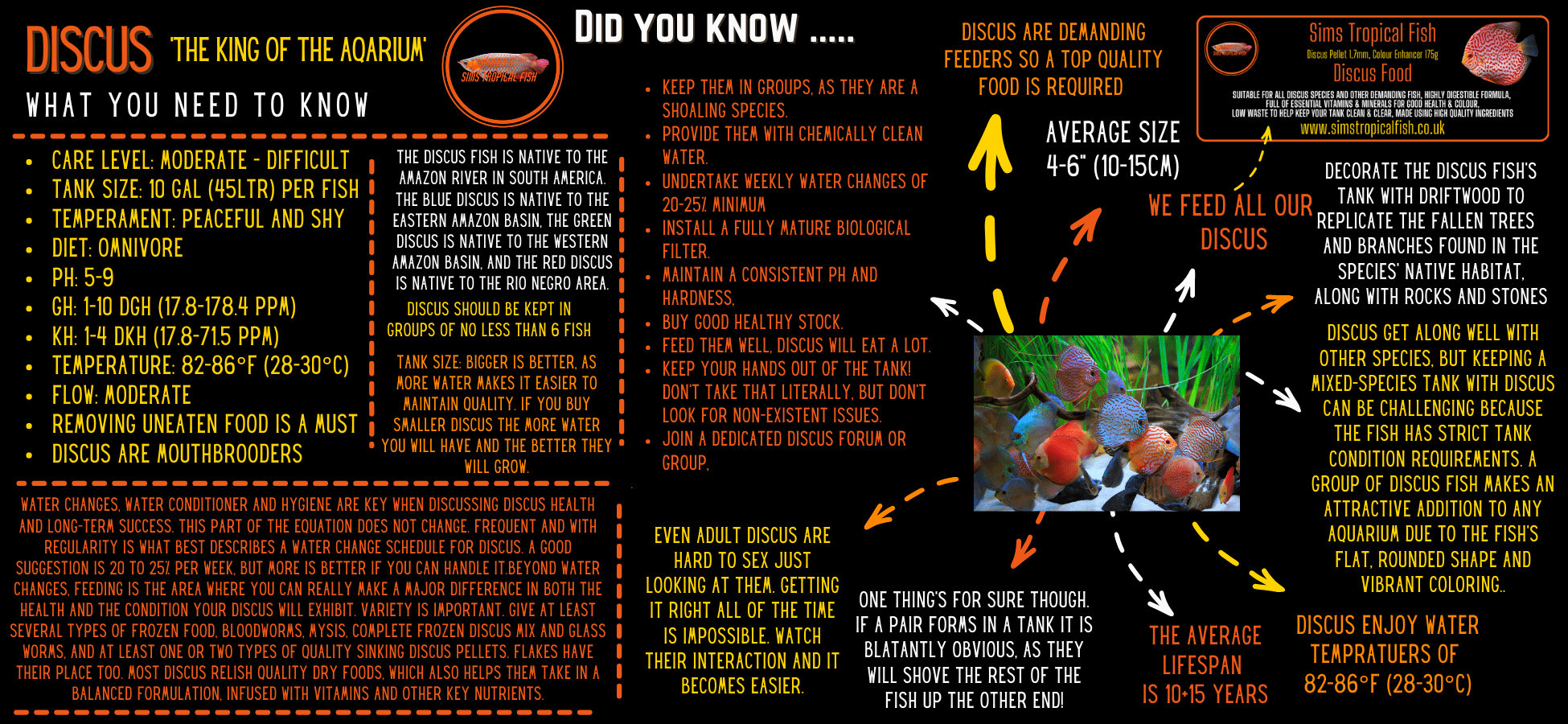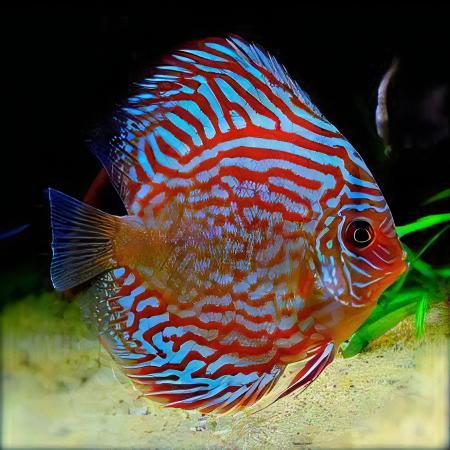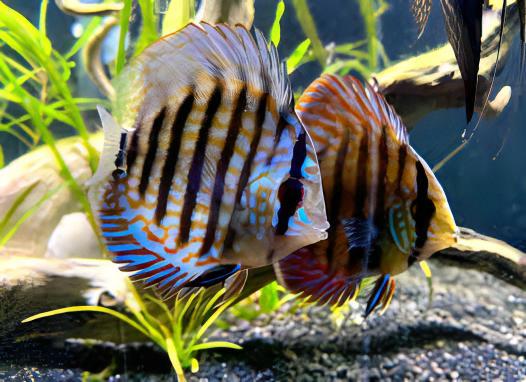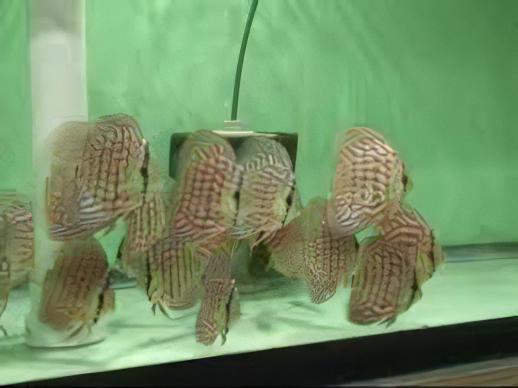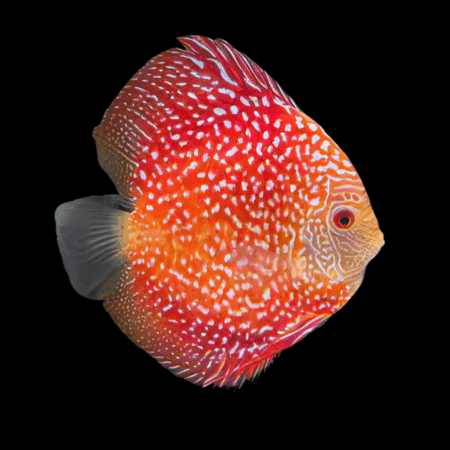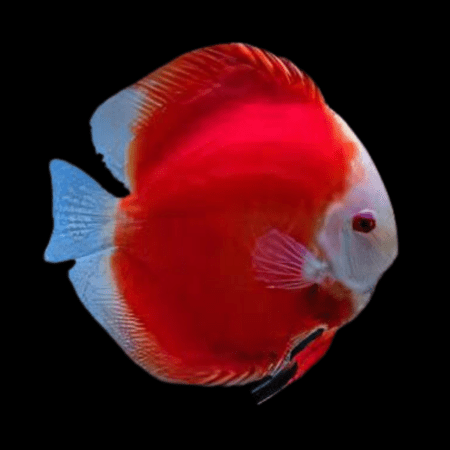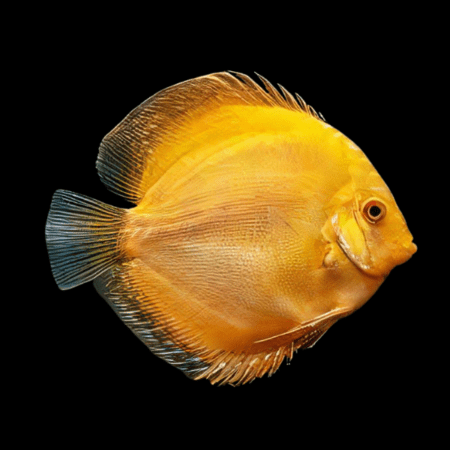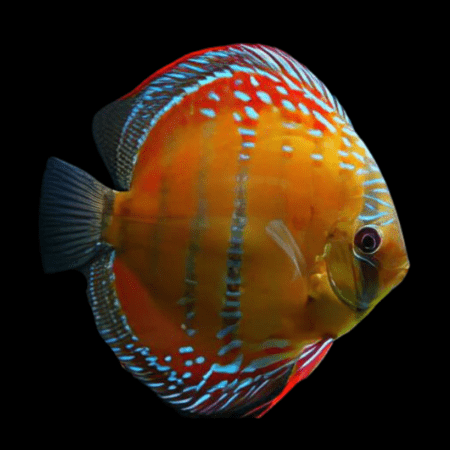Description
King of the Aquarium
Discus are members of the Family Cichlidae and are sometimes referred to as “King of the Aquarium” because of their majestic beauty and regal colours. At least three species have been described, although debate continues over the validity of several assigned scientific names. Wild caught discus can be challenging to keep, due to their specialised water chemistry and dietary needs, however, most discus sold today are captive bred and are much easier to keep. That said, they are not for beginners for a variety of reasons. Through selective breeding, numerous colour varieties are available and more continue to be developed. For care and maintenance purposes, the information presented here can also be used for wild caught P. scalare and P. altum angelfish, as well as Uaru.
Natural Habitat for Discus
Discus are found in floodplain lakes and flooded forests of the lowland Amazon River basin and some of its tributaries, including the Rio Negro. These areas experience extreme changes in water level due to seasonal flooding. Discus tend to congregate near fallen trees, known as “galhadas”, along the shore. They prefer quiet water and are rarely found in areas where there is strong current or wave action.
Discus Water Requirements
Discus prefer warm, soft, acidic water. pH should be between 6.0 and 7.0, with hardness between 1° and 4° dKH (18 to 70 ppm). Temperature should be kept between 82° and 86° F, although wild Heckel discus prefer water near 90° F.
Housing Requirements for Discus
Discus grow to be quite large and require an aquarium of 75 gallons (300l) or larger when full grown. Tall aquariums are best to accommodate their body shape. Water movement should be gentle, and décor should include large broadleaf plants and driftwood that is arranged vertically to simulate downed branches and trees. A few floating plants can also be added to provide shaded areas and cover. Substrate should be sand or fine to medium grade, smooth-surfaced gravel as discus like to forage along the bottom for food.
Discus Behaviour/Compatibility
Discus are generally calm, peaceful fish, but as cichlids, they can be aggressive toward one another, especially when attempting to pair off and spawn. Shy or submissive fish should be removed if they are unable to compete. Most serious hobbyists do not mix their discus with too many other species. Some suitable aquarium mates include cardinal tetras, neons, emperor and rummynose tetras as well as clown loaches and dwarf cichlids, such as rams and Apistogramma species. All of these fish tolerate the high temperatures and low pH/hardness required by discus.
What do Discus Eat?
In nature, discus eat a considerable amount of plant material and detritus, but also forage along the bottom looking for worms and small crustaceans. They are omnivores and will thrive on Pellets and flake along side a treat of frozen and live foods. Some hobbyists and breeders feed their discus beef heart, and while it is not harmful, it is certainly not a natural food for discus. For best results, rotate their diet daily and feed only what they can consume in 2 to 3 minutes, once or twice a day.
Discus Breeding Level – Difficult
Captive bred discus will pair up and spawn relatively easily, but young, inexperienced parents may eat their eggs the first few times, particularly if other fish are present. After hatching, the young feed on heavy body mucus secreted by the parents for a few days until they begin to free-swim. Parents will transfer the young back and forth several times a day.
